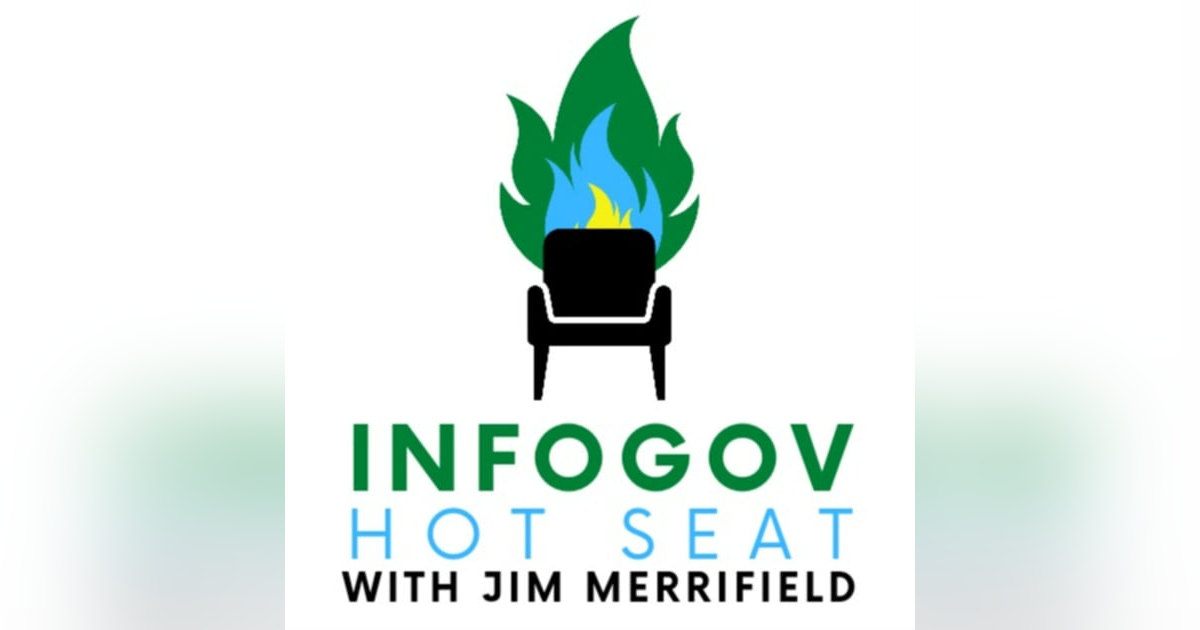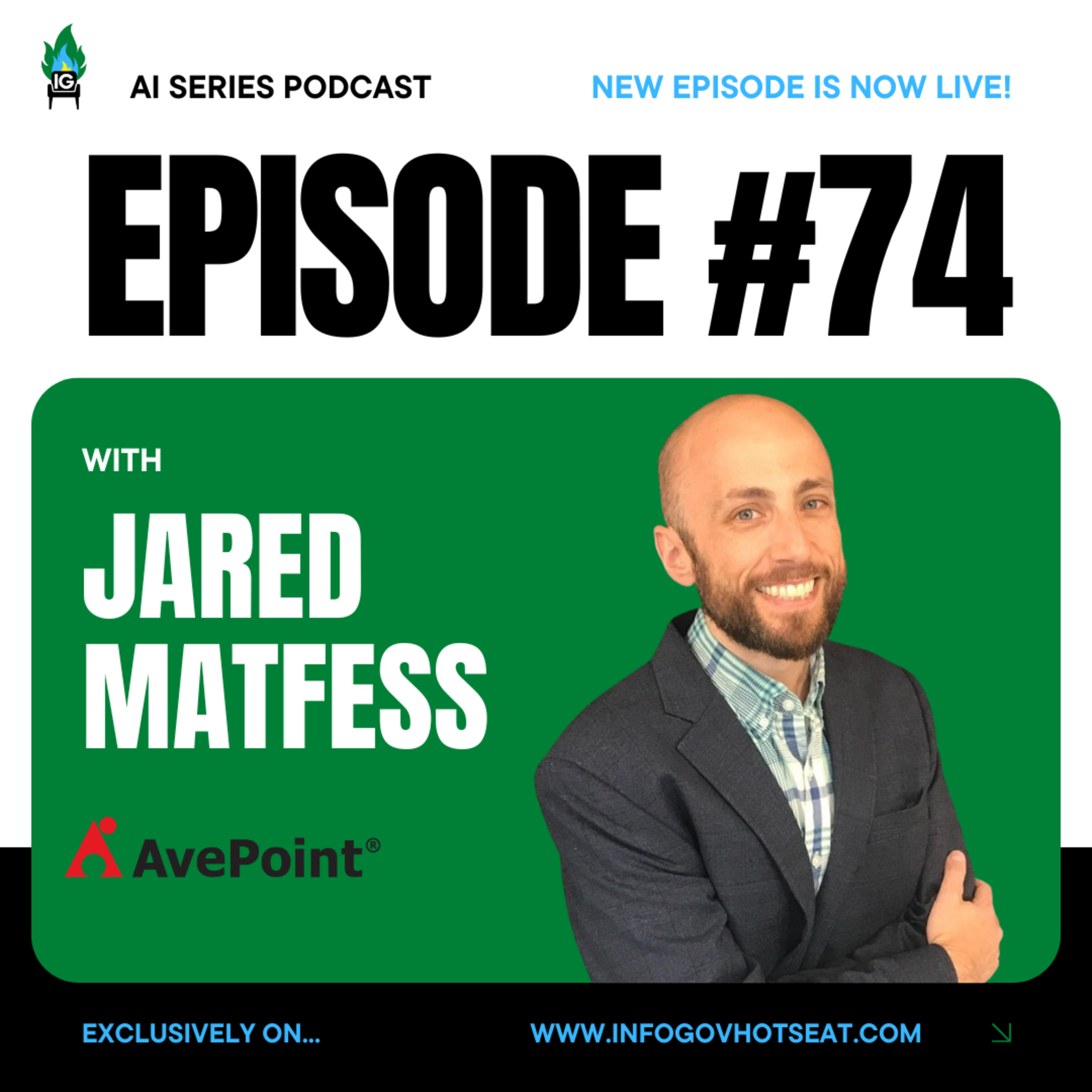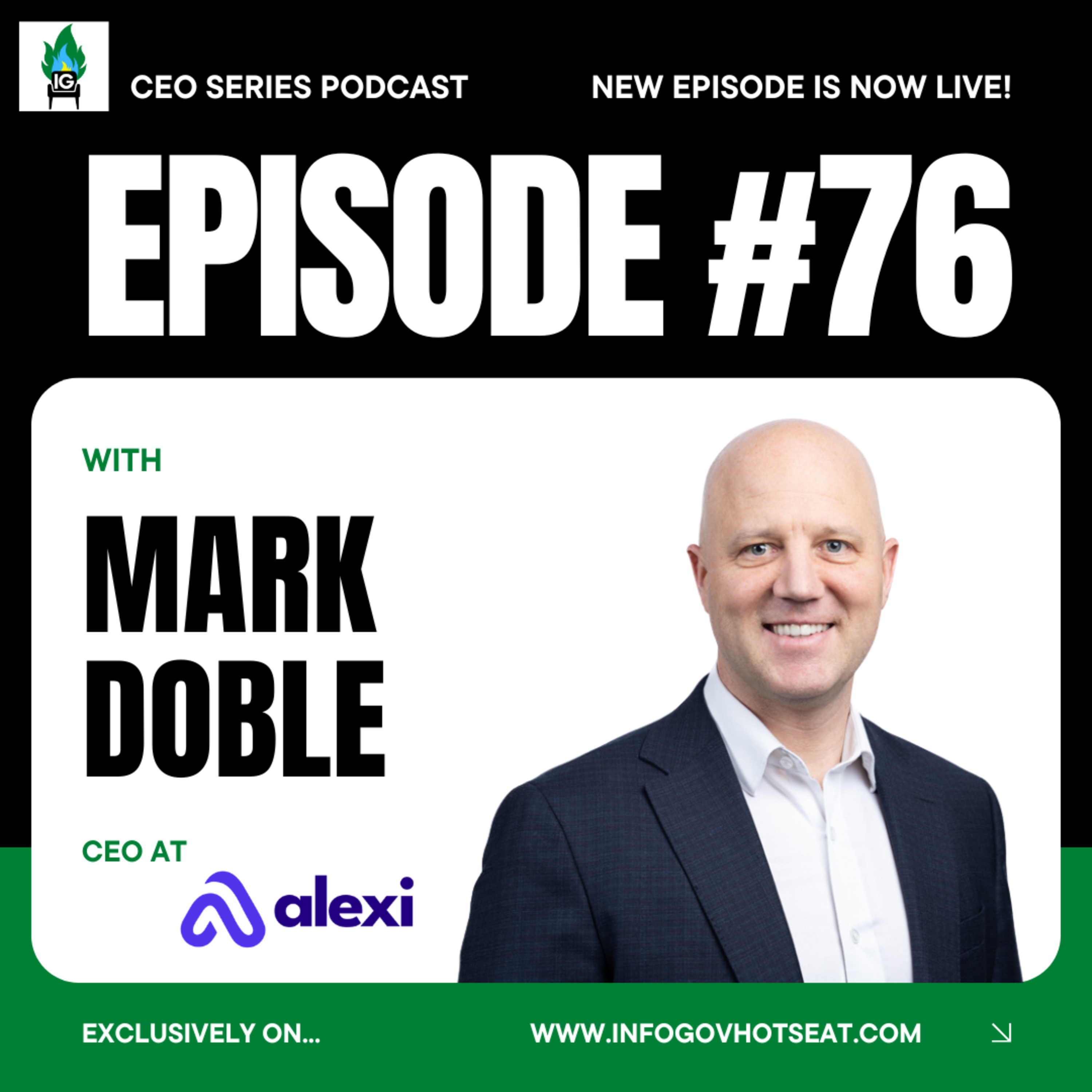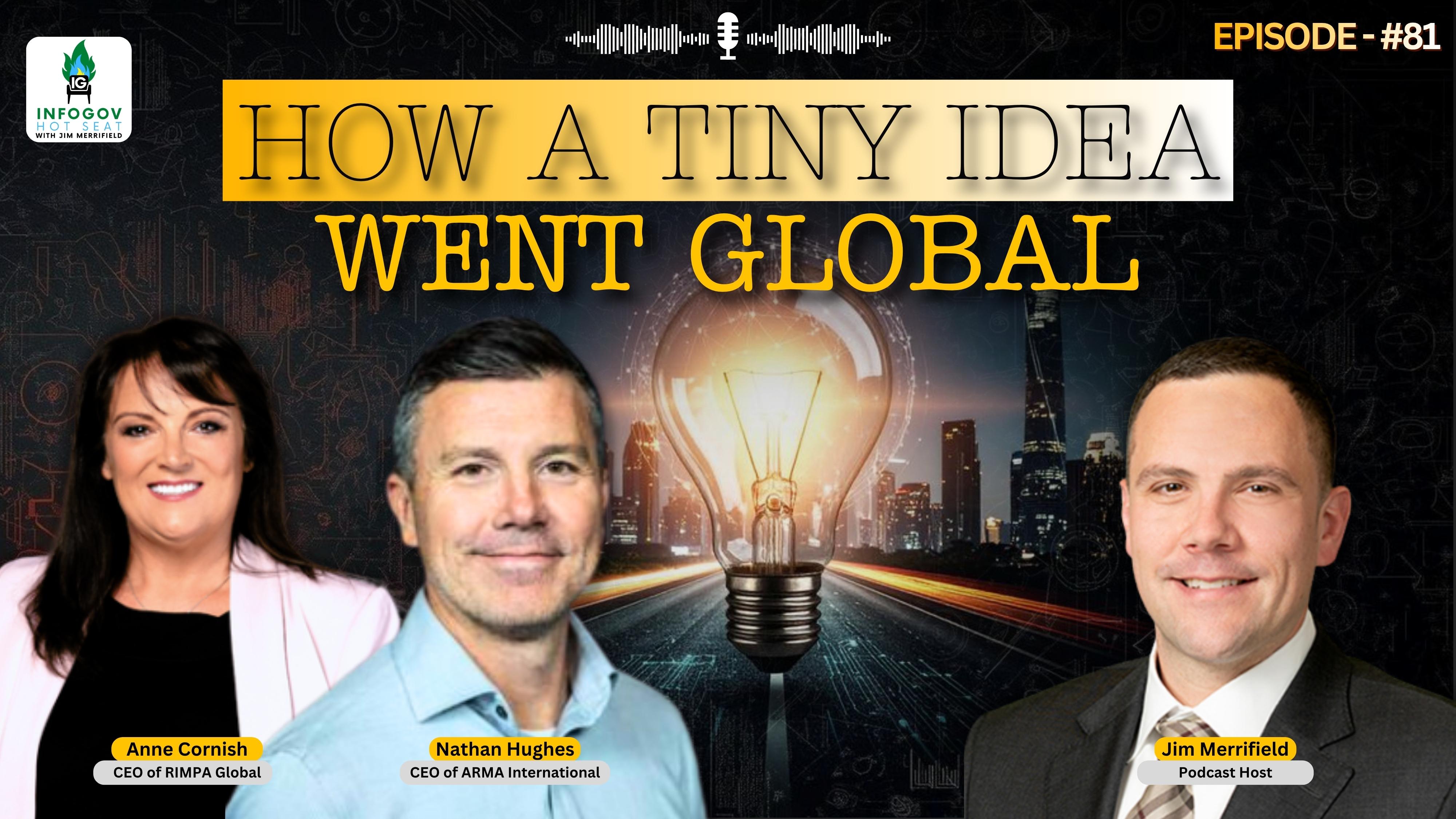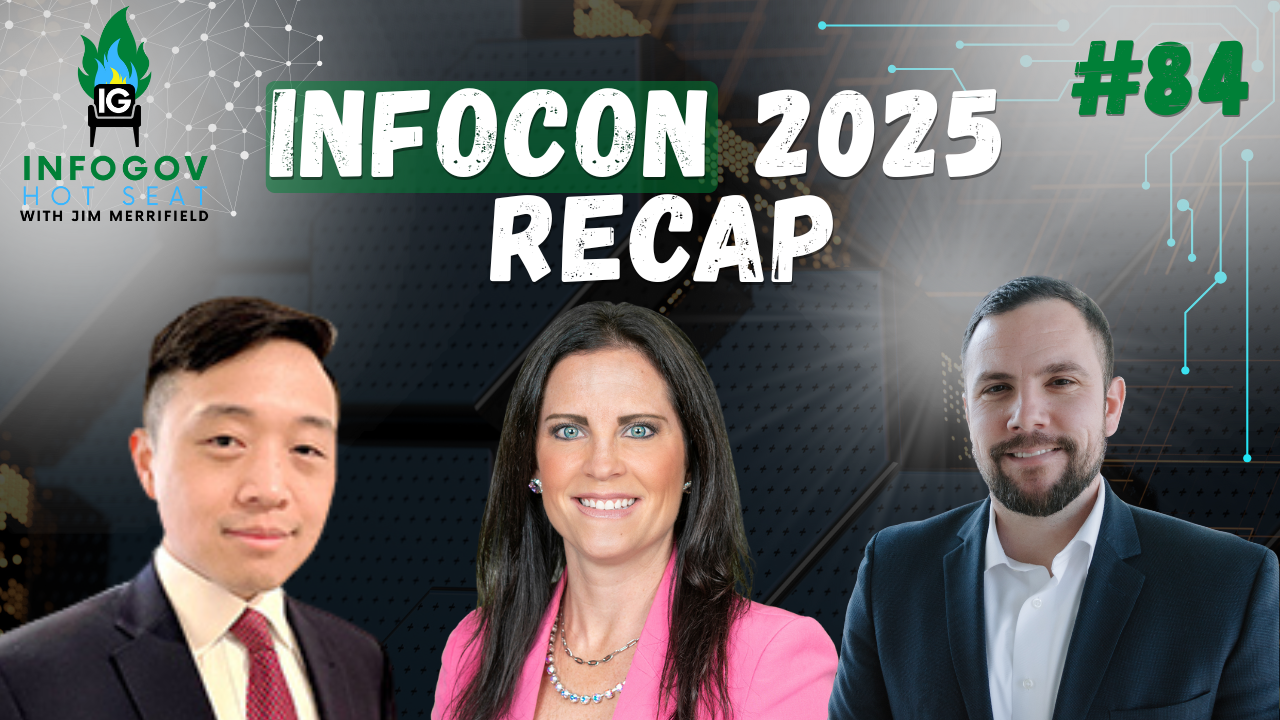IGHS24 - Barbara Dalton, Norton Rose Fulbright
Barbara Dalton, Director of Data Privacy and Information Governance at Norton Rose Fulbright, discusses her role and experiences in the field of information governance. She shares strategies for ensuring data integrity and security, highlights the challenges faced in the industry, and emphasizes the importance of staying updated on privacy laws and regulations. Dalton also discusses the impact of technology on information governance and expresses excitement for the future of the field.
Takeaways
- Building strong relationships with IT is crucial for effective information governance.
- Working with attorneys can be challenging, but it is important to help them understand the value of information governance.
- Staying updated on privacy laws and regulations requires active effort and engagement with professional organizations.
- Advancements in technology have greatly changed the landscape of information governance, offering new opportunities and challenges.
- The future of information governance lies in leveraging AI and other technologies to automate repetitive tasks and focus on strategic initiatives.
Jim Merrifield (00:00.871)
Well hello and welcome to the InfoGov hot seat. I'm your host Jim Merrifield and with me today is Barbara Dalton at Norton Rose Fullbright. Welcome Barbara.
Barbara Dalton (00:10.082)
Thank you, thanks for having me Jim.
Jim Merrifield (00:13.071)
Yeah, it's a pleasure. I'm glad you took some time out of your schedule to be on the hot seat, answer a few questions about yourself and your experience. So here's the first one. Can you tell us a brief introduction of your role? How long you've been with Norton Rose Fulbright and one fun fact about yourself?
Barbara Dalton (00:33.518)
Boy, boy, no pressure. Okay, well, I'm Barbara Dalton. I'm the Director of Data Privacy and Information Governance, a brand new role at Norton Rose Fulbright. I just joined the firm at the end of September and had back-to-back conferences. I had the InfoGov World at the end of September and then ARMA at the beginning of October. So they very generously allowed me to attend those since I had already been committed.
So I actually jumped in with both feet, the second week of October. So I'm still learning the lay of the land, still getting to know all my colleagues and our processes. It's a big firm, there's a lot to learn, but so far I'm just loving it there.
Jim Merrifield (01:23.099)
awesome. Love it. And what's that one fun fact about yourself? Not to put you in the spot but you can't forget that one.
Barbara Dalton (01:28.774)
Oh, fun fact. Oh, boy. Gosh, I'm just not that interesting. But of one fun fact, I was the 12th baby born at our local hospital in the town I still live in. You know, yeah, my parents took a horse and buggy to the hospital on the dirt road. I'm kidding, June. No, but I was the 12th baby born.
Jim Merrifield (01:43.916)
Okay, all right, I like it.
Jim Merrifield (01:50.883)
Oh my goodness, really? True story? No, I'm just kidding, no.
Barbara Dalton (01:57.95)
at the local hospital if you're in Displanes.
Jim Merrifield (02:01.511)
Oh wow, that's awesome. And you're a dog lover, right? We just talked about that.
Barbara Dalton (02:05.126)
I'm a huge dog lover. Daisy interrupted us a little earlier. I actually do a lot of lab rescue. I have three labs, two chocolates and one yellow and all rescues. I've been involved in lab rescue for 15 years or so. So I just love it. If anybody, any of your listeners need a lab, I can set them up.
Jim Merrifield (02:27.999)
Call Barbara. Now that's awesome, that's great. So speaking of our listeners, can you share with everyone the strategies you've implemented over the years to ensure data integrity and security of information?
Barbara Dalton (02:42.618)
Oh gosh. Okay, how long do we have?
Jim Merrifield (02:47.864)
As long as you want.
Barbara Dalton (02:49.658)
That's a really big question. So, you know, first of all, let me tell you a little bit about my background because I don't know if you even know. I didn't start my career in legal. I actually started in pharma. I was in pharmaceuticals for 10, 11 years, building and running a records management program there. It was there that I really cut my teeth on learning about the regulatory requirements.
it would be nothing to have the FDA show up at our manufacturing site to ask for certain records and see how you responded. And you always wanted to avoid what the FDA called observations. And observation was just a note they made about your record keeping or your lack of record keeping. So that was a really, really great learning experience for me. I worked with a lot of scientists. We worked with
raw materials, we made contact lenses, which is considered a medical device. So really, really fun place to learn the business. From there, I went to government. I worked for the clerk of the circuit court of Cook County for about five years. And that's an experience, working for the government. I recommend if anybody ever gets the opportunity to work for the government, take it.
do it at least for a short time. You learn so much about how governments work. And then from there, I did a short stint with a hedge fund company here in Chicago, Citadel. They're pretty huge. Worked there for just about a year. And it was then in 2007, I believe, that I joined a small local firm, Bell Boyden Lloyd, which then merged with K&L Gates just a few years later.
you know, ever since I've been pretty much involved in Big Law, you know, since with K and L Gates, um, McDermott, Wilma and me, Sidley Austin, and now Norton Rose Fulbright. So I really enjoyed Big Law quite a bit. I love the infrastructure of Big Law. So as far as data integrity, you know, I've always made it a point to, um, to make really good friends with IT. And, um,
Barbara Dalton (05:16.21)
understand their processes, their worlds, how we can collaborate on things. Knowing how to classify data when it comes in and protect it, limit it to only the people that need to know. I remember doing some things when PII and PHI started, we had regulations around the handling of that. I remember doing things like
putting key locks on certain work rooms that where people were prevented from going in. And after that it became access control readers, things like that. So it's not just the date, well, these days it is more the data, the electronic data, but I remember a world where you had to prevent access to hard copy records as well. So, you know, I've seen the whole gamut of that over the years.
Jim Merrifield (06:11.219)
Yeah, no, I'm sure you have. You've been with many firms and as you said, government and pharma. So I'm sure along the lines, you've had many successes, but also I'm sure challenges as well, right? So let's talk a little bit about those challenges and how you've managed to overcome those issues. Can you talk a little bit about that?
Barbara Dalton (06:25.181)
Oh yeah.
Barbara Dalton (06:34.406)
Well, I remember starting out in my career in records management, just it was almost a daily challenge just to justify your value to the company, you know, because it was just records and boxes you were managing, right? And it was so much more than that, you know, I remember putting together retention schedules and working with different departments to identify their materials, to send them off site properly.
to assign retention values to them. It's a lot more work than the average person can appreciate. So, you know, that's been a challenge over the years. Now working in legal, I think it's really a challenge to sometimes have the attorneys understand what you do and the value you bring the organization. I think you probably remember this too, Jim. I distinctly remember when this term information governance started.
making its way over here maybe about 15 years ago or something. I kind of scoffed at the idea because I thought well that's what I'm doing now because I always was taking this very holistic view of data, how it comes into the firm, how it's controlled and secured, you know why managing ethical walls and restricting physical access to paper files is so important.
But eventually, I did understand that information governance would be coming a bigger and bigger industry, especially for law firms here. So I think working with attorneys can sometimes be challenging. They're so focused on taking care of their clients and meeting those obligations that they sometimes don't take into consideration the way we do our work makes a big difference.
everything we're keeping in a data repository is potentially discoverable. So we have to be careful about what we're putting in there. And you know, if we're storing things in other repositories too, that's not such a great idea. I know you must struggle with this as much as I do, but we've just got to get our arms around all those data repositories and put some ground rules in place and just ask people to play by those rules. That can be a challenge.
Jim Merrifield (08:55.835)
Yeah, for sure. You mean, we don't put everything in the document management system, you know, and that's it?
Is that unrealistic? Yeah, how simpler the world would be if we could put everything in a document management system or in a box, you know, that would be a lot easier. So for sure. Sometimes I wonder if I should just stay in the, in the, uh, in the business of just managing boxes. You know.
Barbara Dalton (09:04.711)
Hmmm
Barbara Dalton (09:14.75)
Oh yeah.
Barbara Dalton (09:26.786)
They're not doing too badly, yeah. Because a lot of decisions are deferred, right? So that's the sound of money to an offsite storage vendor.
Jim Merrifield (09:37.711)
Yeah, for sure. So yeah, there's plenty of challenges, right? And we all face them collectively, whether big law, small firms, AmLaw 100, 200, even in the corporate world. So let's switch gears a little bit and talk about, there's tons of laws and regulations related to IG and even privacy. And I know privacy is in your title, right? At Norton Rose. So could you shed some light on...
How do you keep up with the latest privacy laws and information governance regulations to records management? How do you do that?
Barbara Dalton (10:13.366)
Wow, that's a challenge. I think for any of us in this business, it really is, especially in the US, the landscape is changing daily. I can't even, you know, you can see IAPP puts out maps of different legislation pending in the US and I don't think they can even keep that current because things change so quickly. You know, I think it's not reasonable to expect any one person to stay on top of that.
and practice information governance at the same time. So I really rely on things like professional organizations, ARMA, ILTA, ILTA is a great organization for that. Just the networking with peers, webinars, seminars, white papers, I recently was very fortunate to be included in the LFIGS community.
where a lot of my peers, and I know you're part of that community as well, Jim, a lot of my peers are tackling these subjects in white papers and things like that. So I think if you want to stay abreast of all of this, you have to make a concerted effort to stay in touch. To, you know, I tell my staff all the time that I should see at least one hour a week.
devoted to a webinar, something like that, because that professional growth is so critical to their continued development. And I feel that same way about mine as well. I used to feel guilty about taking time and attending webinars. I don't anymore, because I just think they're vitally important to continue growing and to continue being in this growth mindset. None of us can know everything. We have to depend on the now, you know.
that knowledge sharing from others to stay current.
Jim Merrifield (12:08.635)
Yeah, it sounds cliche, but it takes a village, right? It takes our teams, it takes a network. We've known each other for quite a while.
Barbara Dalton (12:17.483)
Yeah.
Jim Merrifield (12:17.715)
We collaborate a lot on different projects and pain points and why reinvent the wheel, right? If someone's already kind of somewhat figured it out, right? Someone's probably had the same issue. So yeah, no, that's a great answer. I mean, hopefully one day AI could figure everything out for us, right? And give us all the information we need, but we'll have to wait and see how that works out.
Barbara Dalton (12:29.866)
Exactly.
Jim Merrifield (12:45.407)
So here's another question for you. Our listeners are always interested in the impact of technology. Could you give us some insights into how tech advancements have changed the landscape of IG in law firms? I know there's been tons of changes over the last several years. So can you comment on that a bit?
Barbara Dalton (13:01.614)
Well, you know, it's funny, I was attended a local ARMA meeting last week. And we were talking about this because, you know, I remember the, the days of man carts and, you know, floppy diskettes and things like that. And now we have huge systems devoted to managing all this data and information. There was a time, a friend of mine in the Chicago area once told me she was a CIO of a small.
law firm and her records manager told her that he doesn't do electronic records, he only does hard copy records. And boy, wouldn't that be something if we had that choice? We don't have that choice. You know, that's the reality of the world today. We have to understand how these systems work, how information gets in, how it's secured, how information gets out, who has access to it.
All of those different elements are really key to our understanding of properly managing information. So that's another area where I don't think you can sit by and wait for the information to come to you. You have to actively go after that information and, you know, work with your IT team. See what your, you know, what does your architecture look like at your firm? You know, what do you need to be worried about? Who has access to these?
these shared repositories and what kind of data is being stored there. So it's had a profound impact on our industry for sure.
Jim Merrifield (14:38.343)
Yeah, no, 100%. I mean, there's technology today that I think us as IG professionals can take advantage of that doesn't need a huge tech uplift, right? There doesn't have to be a huge technology uplift or any of that stuff. There's a lot of technology out there that can, you know, crawl our drives and, you know, things like that, and give us insights into our data that wasn't really there, you know, several years ago. So that's awesome.
Barbara Dalton (15:06.774)
Well, I'm really excited about AI in that respect, because I think AI can really, really be promising for information governance professionals just to evaluate the types of information you have. Where are you storing it? Who's accessing it? What gets access more than anything else? All that kind of technology is very promising for our industry.
Jim Merrifield (15:30.735)
Yeah, no, absolutely. So this has been an awesome conversation. I'm going to ask you one final one. If you could look into your crystal ball for 2024, what do you see for information governance? What's it, what excites you?
Barbara Dalton (15:45.754)
AI, that's all we're hearing about right now. But for me personally, I'm really, really excited about bringing groups together at my firm and developing a really world-class information governance program. I love building programs. It's one of the things I enjoy doing more than anything. So.
That's the challenge I'll be taking on for 2024 and learning how to incorporate different technologies like robotic process automation. I've got some ideas for how we can build some bots to go out and perform activities that are taking us hours on end to do right now, such as a bunch of reports for departing attorneys. How can we leverage that kind of technology to make our jobs easier and more effective? So that's what I'm looking forward to.
Jim Merrifield (16:43.271)
Yeah, I think that's insightful, right? How we can use AI to maybe solve some of those repeatable tasks so that we could focus on more strategic things, pushing our firms forward. So that's awesome. You got a lot on your plate for 2024, I'm sure.
Barbara Dalton (16:59.934)
I think we all do. I think we all do. It's really an exciting time to be in this profession, but it can be daunting. It can be daunting at times. I always say, I think the information governance community is probably one of the best communities you can be part of, because people are so willing to share their triumphs and their tribulations, and you learn from each other, and it's just a great community.
Thanks, Jim, for spreading the word more amongst our community too. Your audience is able to meet people that they may have never met otherwise. So kudos to you for that as well.
Jim Merrifield (17:41.179)
No, happy to know and thank you for spending some time with us, you know sharing your insights your experiences You have tons of experience and knowledge to share So thanks so much for spending some time today and on the hot seat, right? The questions weren't that tough but you made them enjoyable and Yeah, see there you go. So listen, thank you so much for being on here and thank you for listening to today's episode on the info gov hot seat
Barbara Dalton (17:59.245)
My seat was cozy.
Jim Merrifield (18:10.547)
I encourage you to please visit our website, infogovhotseat.com to view the latest episodes and the like. And if you'd like to be a guest on the hot seat, just like Barbara here, please submit your information through our website and thank you and enjoy the rest of your day.
Barbara Dalton (18:27.586)
Thanks, Jim.
Jim Merrifield (18:29.471)
You got it.
